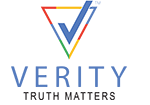The California Transparency in Supply Chains Act
Introduction
In enacting the Transparency in Supply Chains Act, the California Legislature found that slavery and human trafficking are crimes under state, federal, and international law; that slavery and human trafficking exist in the State of California and in every country, including the United States; and that these crimes are often hidden from view and are difficult to uncover and track. (S.B. 657, § 2, subds. (a)-(c).) The Legislature also found that consumers and businesses are inadvertently promoting and sanctioning these crimes through the purchase of goods and products that have been tainted in the supply chain, and that, absent publicly available disclosures, consumers are at a disadvantage in being able to distinguish companies on the merits of their efforts to supply products free from the taint of slavery and trafficking. (S.B. 657, § 2, subds. (h), (i).) In passing the Transparency in Supply Chains Act, the Legislature declared the intent of the State of California to ensure that large retailers and manufacturers provide consumers with information regarding their efforts to eradicate slavery and human trafficking from their supply chains, educate consumers on how to purchase goods produced by companies that responsibly manage their supply chains, and, thereby, improve the lives of victims of slavery and human trafficking. (S.B. 657, § 2, subd. (j).)
In order to provide consumers with this critical information and to allow consumers to make more educated purchasing decisions, the Legislature mandated the posting of information by certain companies. A company must meet certain criteria to be subject to the law. It must: (a) identify itself as a retail seller or manufacture in its tax returns; (b) satisfy the legal requirements for “doing business” in California; and (c) have annual worldwide gross receipts exceeding $100,000,000. The law requires companies subject to the law to disclose information regarding their efforts to eradicate human trafficking and slavery within their supply chains on their website or, if a company does not have a website, through written disclosures.
The information provided on this website is intended to provide a general understanding about the Transparency in Supply Chains Act. Anyone with questions regarding whether a company is subject to the law, or how to comply with the requirements should refer to the Supply Chains Act or consult legal counsel.
Who is Covered by the Supply Chains Act?
- Retail Sellers or Manufacturers
- Doing Business in the State of California
- With Annual Worldwide Gross Receipts in Excess of $100,000,000
Required Disclosures
Companies subject to the Transparency in Supply Chains Act must disclose the extent of their efforts in five areas: verification, audits, certification, internal accountability, and training. Specifically, in its supply chains disclosure, a company must disclose to what extent, if any, it:
- Engages in verification of product supply chains to evaluate and address risks of human trafficking and slavery. The disclosure shall specify if the verification was not conducted by a third party.
- Conducts audits of suppliers to evaluate supplier compliance with company standards for trafficking and slavery in supply chains. The disclosure shall specify if the verification was not an independent, unannounced audit.
- Requires direct suppliers to certify that materials incorporated into the product comply with the laws regarding slavery and human trafficking of the country or countries in which they are doing business.
- Maintains internal accountability standards and procedures for employees or contractors failing to meet company standards regarding slavery and trafficking.
- Provides company employees and management, who have direct responsibility for supply chain management, training on human trafficking and slavery, particularly with respect to mitigating risks within the supply chains of products.
